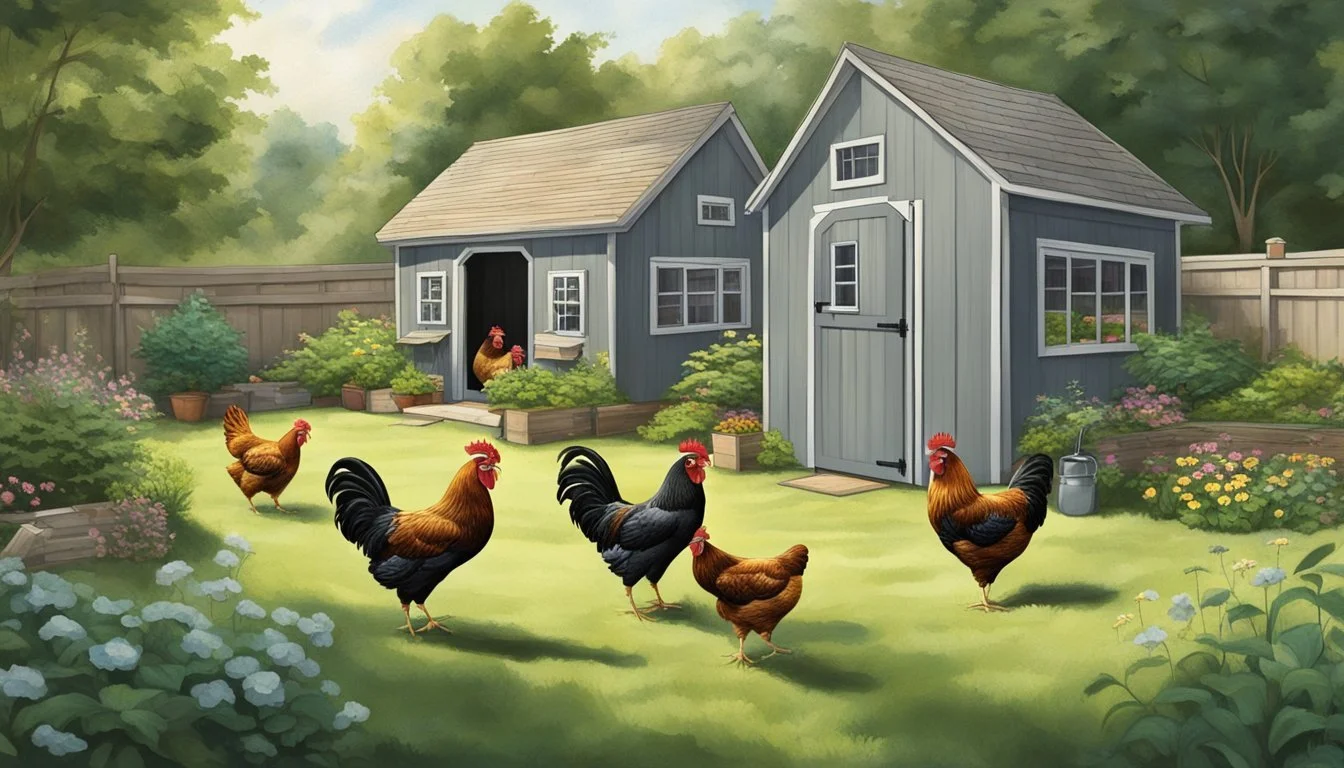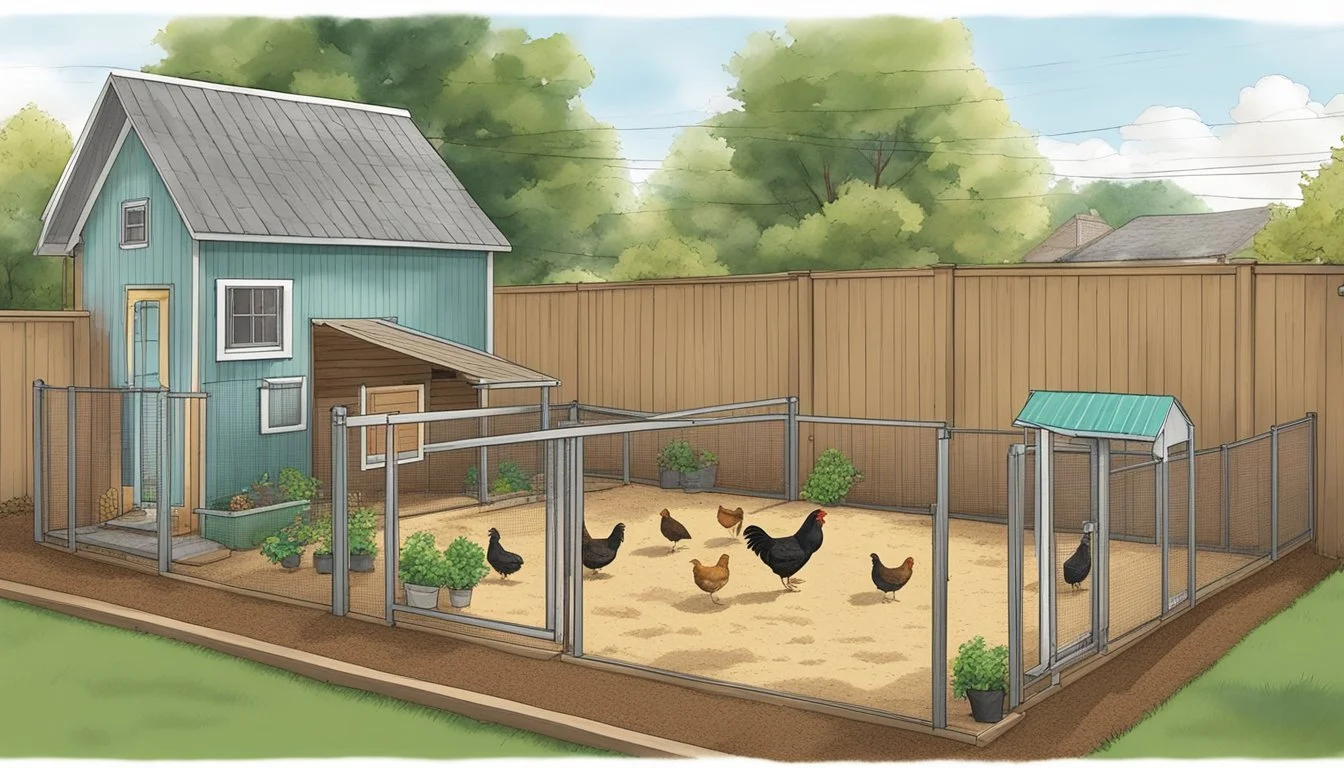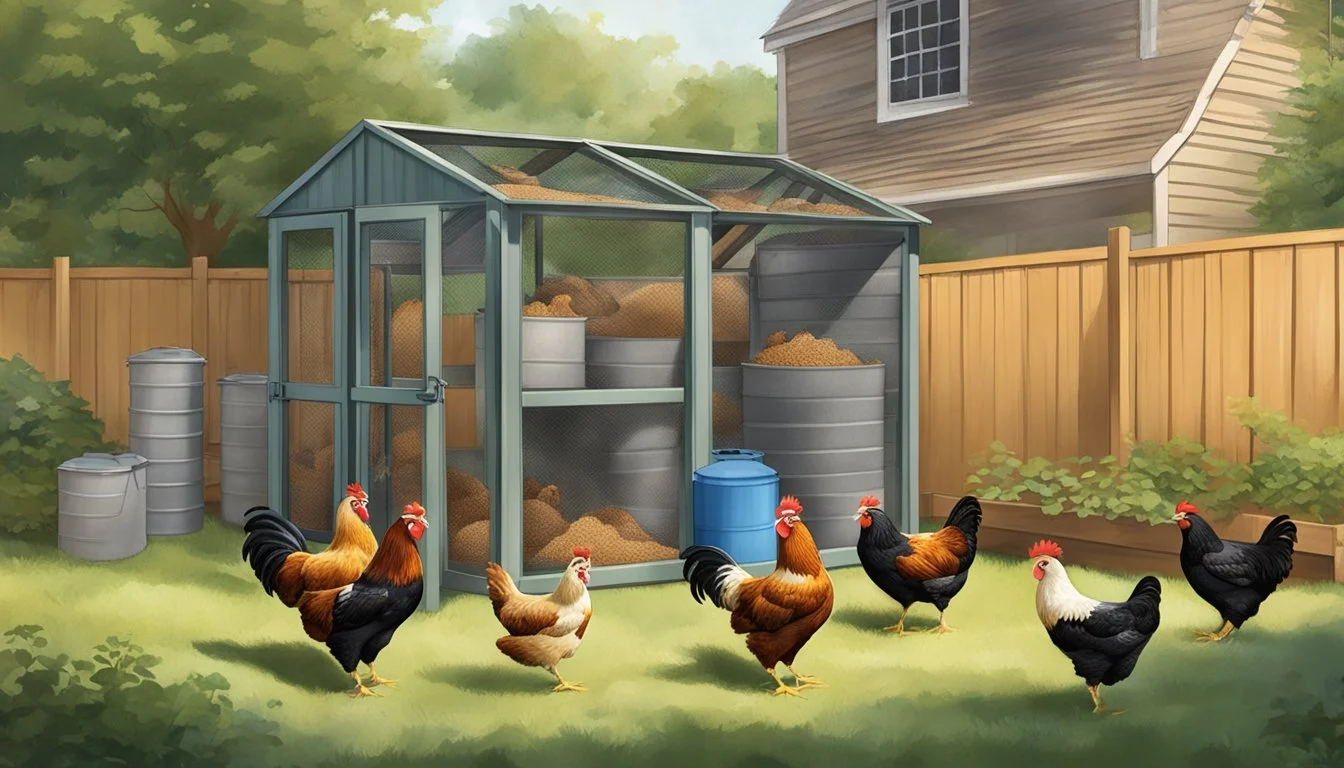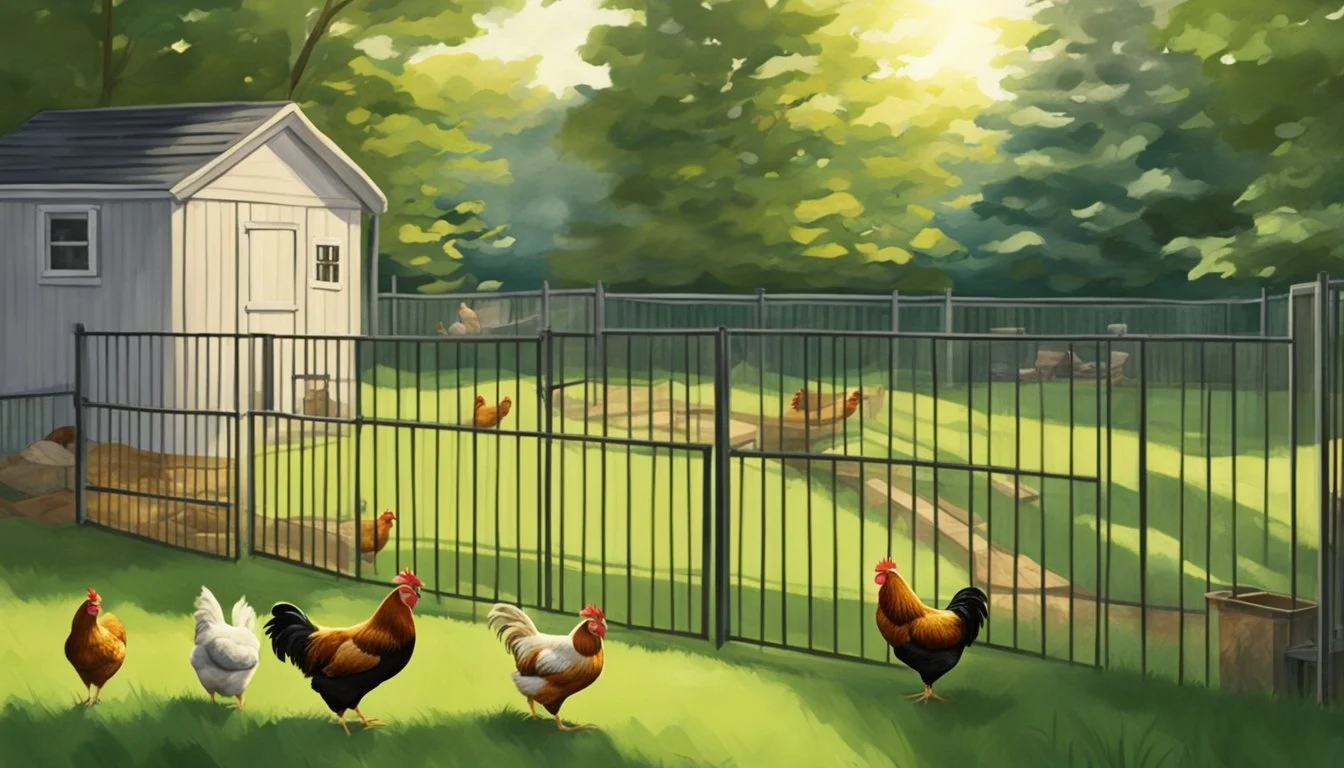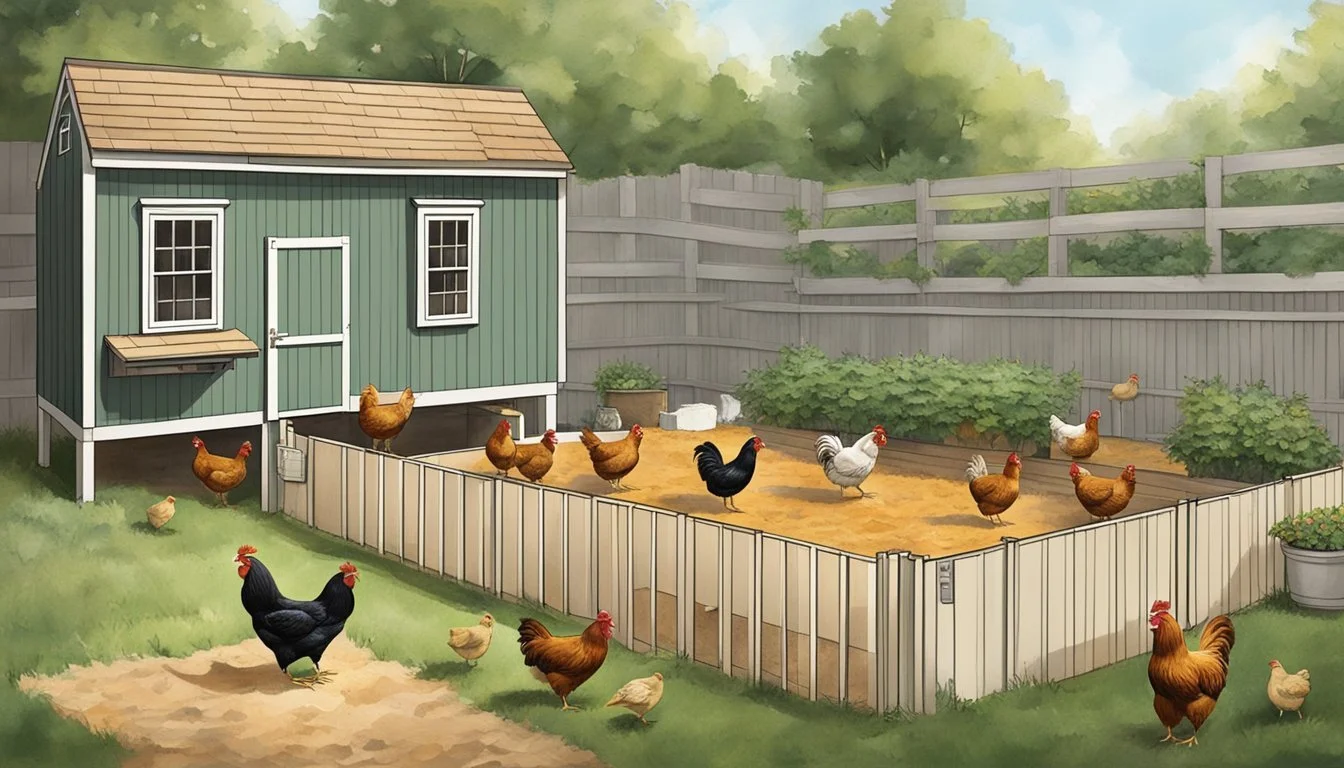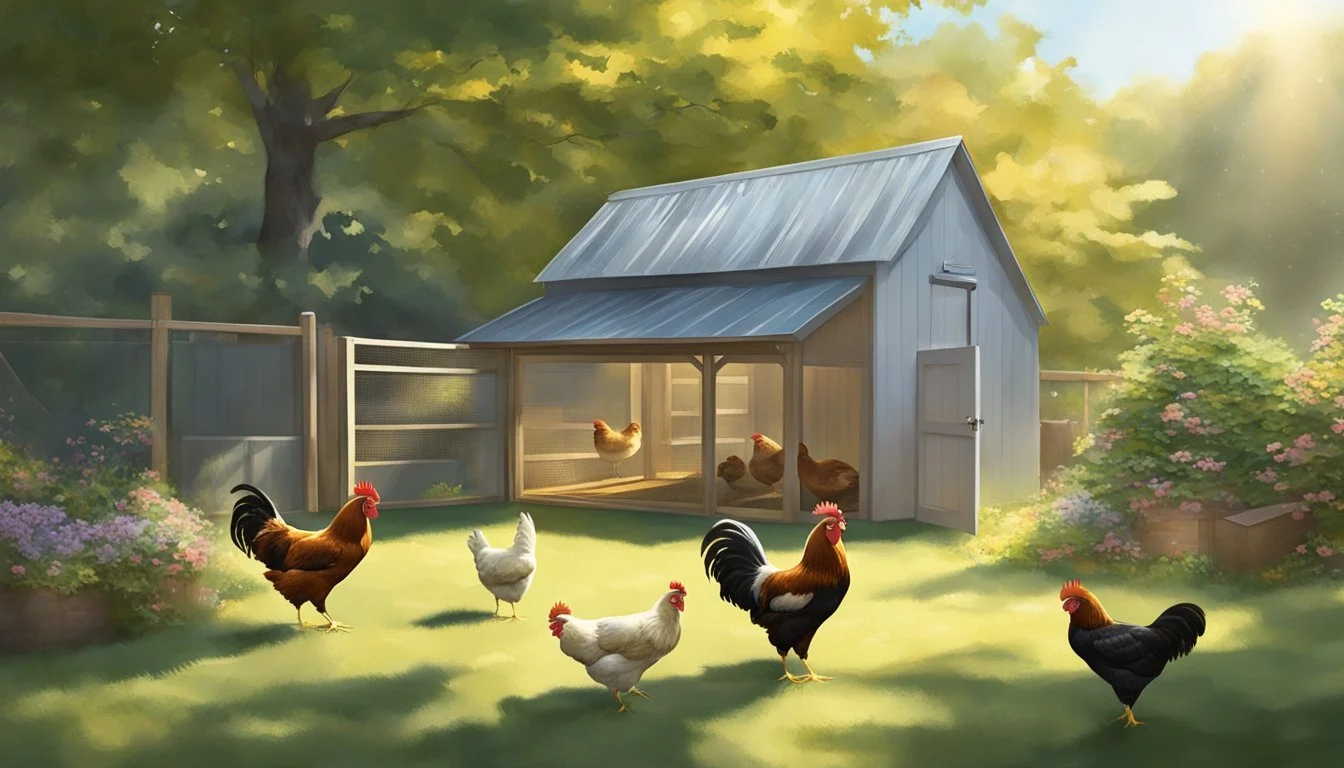Raising Backyard Chickens in Pawtucket, RI
Your Ultimate Guide to Getting Started
Raising backyard chickens has become a popular endeavor for many looking to enjoy fresh eggs, natural pest control, and the simple pleasures of farm life in an urban setting. In Pawtucket, Rhode Island, residents interested in this pursuit must navigate a specific set of guidelines to ensure compliance with local ordinances. With growing interest in sustainable living and local food sources, understanding these regulations is essential for any aspiring chicken owner in the city.
The city of Pawtucket permits the raising of chickens, though with thorough regulations that residents must follow. These rules are set to address concerns such as space, number of chickens allowed, and coop specifications to maintain both the health of the chickens and the peace in the neighborhood. Prospective chicken keepers in Pawtucket must stay informed and reach out to local officials to receive current and detailed updates on the guidelines to avoid any legal issues.
While the state of Rhode Island does not enforce statewide regulations on the keeping of backyard chickens, it leaves the decision to municipal jurisdictions. This means that the practices and policies can vary greatly between different localities. In Pawtucket, the approach to backyard chicken raising is structured to balance the interests of urban poultry enthusiasts with the well-being of the community.
Understanding Pawtucket Regulations
In Pawtucket, RI, raising backyard chickens is subject to local regulations, including zoning requirements and specific chicken ordinances. Residents need to be aware of these rules to legally and respectfully raise chickens within city limits.
Overview of Local Ordinances
Pawtucket, like other municipalities in Rhode Island, does not follow statewide legislation for backyard chicken raising; instead, it enforces its own local ordinances. Local ordinances determine whether residents can keep chickens, how many they can have, and the conditions required to raise them properly within the community.
Residential Zoning and Livestock Restrictions
Residential zoning laws significantly impact the keeping of backyard chickens. Certain zones may restrict the raising of livestock, and Pawtucket residents must review their zoning classifications to ensure they comply. Residential areas typically have more stringent restrictions to prevent nuisances and maintain public health standards.
Specifics of Pawtucket Chicken Ordinance
The Pawtucket Chicken Ordinance outlines specific requirements for residents who want to keep chickens. These may include:
Limits on the number of chickens allowed
Distance of chicken coops from residential structures
Sanitation and noise control measures
Possible ban on roosters to minimize noise
The city may periodically update the ordinance, so it’s essential for community members to contact local officials for the latest regulations on backyard chickens.
Planning Your Chicken Coop
When embarking on raising backyard chickens in Pawtucket, RI, a well-planned chicken coop that ensures the comfort, protection, and well-being of the chickens is crucial. Prioritizing practical design elements and security considerations can lead to a thriving environment for the poultry.
Choosing the Right Location
One must select a lot with adequate drainage and exposure to sunlight to avoid dampness and promote the health of the chickens. It should be positioned away from property boundaries to respect neighbors and be in compliance with local regulations, which may require specific setbacks.
Design and Size Considerations
The size of the coop directly correlates to the number of chickens; approximately 2-3 square feet per chicken within the coop and 8-10 square feet in the fenced outdoor enclosure are recommended sizes. Ensuring sufficient ventilation while maintaining insulation and including the right number of nesting boxes (typically one box per 3-4 hens) is imperative for the chickens' health and egg-laying.
Component Size Recommendation Coop Interior Space 2-3 sq ft per chicken Fenced Outdoor Enclosure 8-10 sq ft per chicken Nesting Boxes 1 per 3-4 hens
Security and Predator Protection
Properly constructed housing with robust security protects chickens from predators. Features such as buried hardware cloth, secure latches, and covered runs help fortify against potential threats. Regular inspection and maintenance of the coop's integrity are essential in safeguarding the flock.
Selecting Your Chickens
When deciding to raise backyard chickens in Pawtucket, RI, selecting the right breed for your needs and local climate is essential. Consideration of temperament, egg production, and the breed's adaptability to Pawtucket's weather conditions will play a crucial role in your poultry-keeping success.
Understanding Different Breeds
There is a wide variety of chicken breeds available, each with its own set of characteristics. Some of the most popular breeds for backyard chicken enthusiasts include:
Rhode Island Red: Known for their hardiness and ability to lay a high volume of brown eggs.
Leghorn: Renowned for their impressive egg-laying ability, particularly white eggs, and adaptability to various conditions.
Plymouth Rock: A versatile breed that is friendly and capable of producing a good number of eggs.
Sussex: Appreciated for their calm disposition and steady egg production.
Temperament and Egg Production
Chickens' temperament can influence their suitability for backyard environments. Breeds like the Sussex are generally calm, making them excellent for families and interactive backyard settings. In terms of egg production, consider:
Layers: Breeds categorized as 'layers' are optimized to produce a large number of eggs.
Temperament: Calmer chickens tend to be better layers under the stress of a backyard setting.
Roosters: They are not necessary for egg production and are typically not allowed in urban settings due to noise ordinances.
Adjusting for Pawtucket Climate
Pawtucket's climate can vary, with cold winters and humid summers. Some breeds adapt better to these conditions:
Rhode Island Red and Plymouth Rock: These breeds are known for their hardiness in cold weather.
Leghorn: While they are good layers, they might need additional shelter and care during the colder months.
Sussex: These birds have a heavier build, which can help them endure cooler temperatures.
Careful selection of chickens that can thrive in Pawtucket's climate will ensure the health and productivity of your backyard flock.
Feeding and Nutrition
Proper nutrition is fundamental for the health and productivity of backyard chickens in Pawtucket. A balanced diet ensures that chickens grow well, produce quality eggs, and maintain a robust immune system.
Essentials of Chicken Feed
A chicken’s diet must be balanced and nutritionally complete. Commercial chicken feed typically contains a mix of grains, protein, vitamins, and minerals to meet a chicken's dietary requirements. When choosing feed, owners should consider the following essential components:
Grains: The foundation of most chicken feeds, providing carbohydrates for energy.
Protein: Usually from soybean meal, necessary for growth and egg production.
Calcium: Needed for strong eggshells, often included in layer feeds.
Grit: Helps chickens digest their food, as it grinds down the grains in the gizzard.
Feeders play a crucial role in feeding chickens. They should be sturdy, easy to clean, and large enough to hold feed for the entire flock. Placement of feeders is just as important; they should be positioned to prevent contamination from droppings and deter pests.
Supplements and Treats
In addition to their main feed, chickens benefit from certain supplements and treats, which should be given in moderation:
Oyster shell: An excellent source of calcium for laying hens, it supports shell integrity.
Kitchen Scraps: Can provide variety and enrichment. However, only offer healthy scraps such as vegetables, fruits, and grains in small amounts.
Owners must ensure that treats and scraps do not exceed 10% of the chicken’s diet to maintain nutritional balance. Additionally, continual access to fresh, clean water is essential for digestion and overall health.
Health and Welfare
Raising backyard chickens in Pawtucket, RI, necessitates a commitment to their health and welfare. This includes regular care practices and proactive pest management to ensure the chickens are healthy and risks are minimized.
Routine Care and Maintenance
Chickens require consistent care and maintenance to stay healthy. Daily checks should be conducted to ensure chickens have access to clean water and nutritious feed, which is essential for their growth and immunity. The coop should be kept clean and spacious to prevent the spread of disease, and coop deodorizers can be used to maintain a fresh environment. It is also vital to observe chickens for signs of illness or distress, and to have anti-pecking sprays on hand to deter harmful behavior.
Daily Responsibilities:
Fresh water and feed
Observing chicken behavior
Weekly Tasks:
Full inspection for potential health issues
Coop sanitation
Replenishing bedding materials
Dealing with Pests and Parasites
Pests and parasites are a common concern in poultry rearing and can pose significant health risks to backyard chickens if not effectively controlled. Integrated pest management strategies combining prevention, upkeep, and treatment are recommended to combat these challenges.
Common parasites such as mites and lice can be addressed through regular inspection and the application of approved pest control products. Keeping the coop dry and clean is critical as damp conditions attract pests. Chickens should be provided with a dust bath area as it helps them naturally control external parasites.
Integrated Pest Management:
Regular coop inspection
Timely application of pest control methods
Maintenance of dry, clean living conditions
When dealing with pests and parasites, it is crucial to identify the problem early and apply appropriate treatments. The local regulations in Pawtucket may have specific recommendations or restrictions on pest control products, so poultry keepers are advised to stay informed about current laws and best practices.
Coop Management Technologies
In the realm of backyard chicken raising, Coop Management Technologies have become a game-changer, especially when efficiency and security are paramount. These systems offer solutions that range from automating daily tasks to providing enhanced safety for the flock.
Automated Features for Efficiency
The implementation of automatic coop doors is essential for maintaining a regimented schedule for chickens, allowing them to access the outdoors without manual intervention. Such doors can be programmed to open at sunrise and close at sunset, securing the chickens against predators.
For coop lighting, LED systems are often integrated with timers or light sensors. Proper lighting is not only critical for the health and productivity of the chickens but also for egg production during shorter winter days. These fixtures ensure a consistent light schedule that can be tailored to the flock’s needs.
Regarding climate control, coop heating systems are indispensable in colder climates. Pawtucket residents have solutions that include temperature-sensitive switches ready to activate heaters when near-freezing temperatures are detected, thus safeguarding the chickens from harsh weather conditions.
Safety and Monitoring Solutions
Safety in a coop can be greatly enhanced with the deployment of coop cameras. Owners can monitor their coops remotely, providing peace of mind and the ability to observe any unusual behaviors or possible distress within the flock.
Beyond surveillance, toys for chickens serve a dual purpose. They act as enrichment tools that mitigate stress and encourage natural behaviors, while also offering indirect monitoring of the chickens' engagement and activity levels, which can be indicative of their well-being.
These innovations in Coop Management Technologies underscore a commitment to the welfare of backyard chickens while simplifying the responsibilities of their keepers in Pawtucket, RI.
Community and Legal Considerations
Raising backyard chickens in Pawtucket is a practice tightly bound by community interactions and city regulations. Residents must gracefully navigate both to ensure a harmonious coexistence between their poultry pursuits and urban life.
Engaging with Neighbors
When deciding to raise chickens in Pawtucket, one must first consider their neighbors. It's essential to address potential nuisance issues such as noise, odor, and pests to maintain good relationships. A proactive approach involves:
Communicating Intentions: Sharing plans with neighbors can preempt concerns and build supportive relationships.
Mitigating Impact: Implementing measures to reduce noise (like not keeping roosters) and managing waste to minimize odors.
Contributing to Local Agriculture
By raising backyard chickens, residents contribute positively to Pawtucket's local agriculture scene, endorsing sustainable living within the community. Key contributions include:
Local Food Production: Backyard chickens provide a source of fresh eggs, reducing reliance on commercial agriculture.
Educational Value: They serve as a tool for educating the community about animal care and local food sources.
By adhering to regulations and considering the impact on neighbors and local agriculture, Pawtucket residents can successfully integrate backyard chickens into their urban lifestyle.
Advanced Topics for Hobbyists
When delving into the finer aspects of backyard chicken raising in Pawtucket, hobbyists find incubation and hatching, as well as exhibition and breeding, to be compelling fields to explore. Mastery of these advanced topics can lead to a self-sustaining flock and opportunities for sharing genetics and showcasing prize birds.
Incubation and Hatching Eggs
Successful incubation and hatching require precise control of environmental conditions. Hobbyists should maintain a consistent temperature of 99.5 degrees Fahrenheit and relative humidity around 50-55% during incubation, increasing to 65% during the final days before hatching. For hatching eggs, one should rotate them manually at least three times daily until day 18 to prevent the embryo from sticking to the shell and to ensure proper development. Australorps, known for their hardiness and large brown eggs, can be an excellent choice for beginners. When hatching Australorp eggs or any breed, it's also important to track and record each egg's development, which can help in assessing the incubation process.
Exhibition and Breeding
The world of exhibition and breeding is both competitive and rewarding. Hobbyists who take this path focus on genetics and phenotype perfection, aiming for the highest standard of the chosen breed. To excel, one must be well-acquainted with the breed's standard of perfection, which includes size, plumage color, and behavior. Breeding Australorps, for example, could focus on their striking black feathers with a lustrous green sheen and traditional heavy build, which are admired traits in the show ring. Keeping detailed records of lineages and traits is critical for selective breeding. Furthermore, exhibition birds require special care in grooming and handling to prepare them for the show environment. Enthusiasts often become members of poultry clubs and associations to stay informed on exhibition standards and opportunities.
Resources and Support
Raising backyard chickens requires not only commitment but also adequate knowledge and community support. This section focuses on clubs and educational resources available to aspiring and current chicken keepers in Pawtucket, RI.
Pawtucket Chicken Keeping Clubs
In Pawtucket, individuals looking to connect with experienced chicken keepers can join local chicken keeping clubs. These clubs offer a platform for residents to share tips, resources, and experiences. Participation in such clubs can aid in understanding the nuances of municipal regulations across various Rhode Island communities, including Warwick, South Kingstown, West Warwick, Coventry, Cranston, Cumberland, East Providence, Newport, Bristol, Warren, and Scituate.
Clubs often discuss best practices for creating a suitable environment for chickens, such as providing adequate space and handling fertilizer and manure responsibly to protect the environment. Meetings may feature guest speakers like local experts, for example, Tom Oates, who can provide insights on chicken care.
Educational Materials and Workshops
For those in and around Pawtucket, various educational materials and workshops are accessible for both beginners and experienced poultry enthusiasts. These resources focus on critical aspects of chicken care, including coop construction, proper nutrition, disease prevention, and ethical treatment of animals.
Workshops: Hosted by agricultural extension offices or local farming co-ops in cities like Providence and Pawtucket, these workshops cover practical topics such as ensuring chickens have the adequate space, dietary needs, and interactive learning on handling chickens correctly.
Educational Materials: Books, online articles, and guides provide reliable information crucial for raising chickens. They offer in-depth knowledge about the breeds of chickens allowed in the area, how to use their manure as fertilizer, and ways to maintain environmental sustainability.
Local authorities or municipal offices can also serve as a resource, offering the latest updates on regulations relevant to chicken keepers. Residents are encouraged to stay informed about current city ordinances by regularly engaging with such entities.
Conclusion
Raising backyard chickens in Pawtucket, RI, involves navigating certain regulations. Residents must seek approval from the Animal Control Officer, as city ordinances prohibit keeping chickens without this consent. Potential chicken keepers should be aware of the commitment and responsibilities involved.
Prospective owners should consider:
Space: Chickens need a clean and spacious area.
Equipment: Essential equipment includes feeders, waterers, and a secure coop.
Health: Providing quality feed and warmth is crucial for their health and well-being.
Regulations: Local laws must be adhered to, starting with obtaining necessary permits.
While the benefits of fresh eggs and natural pest control are enticing, one must weigh them against the cons:
Time Investment: Chickens require daily care.
Noise and Odor: Proper maintenance is required to manage these aspects.
Predators: Coops must protect against potential predators, which are a concern even in urban areas.
Residents should conduct thorough research and reach out to local resources for guidance. Successfully maintaining a flock demands ongoing diligence and compliance with local statutes.
In summary, while backyard chickens can be a rewarding venture in Pawtucket, RI, individuals must proceed with a clear understanding of the city's regulations and the practicalities of chicken care.

